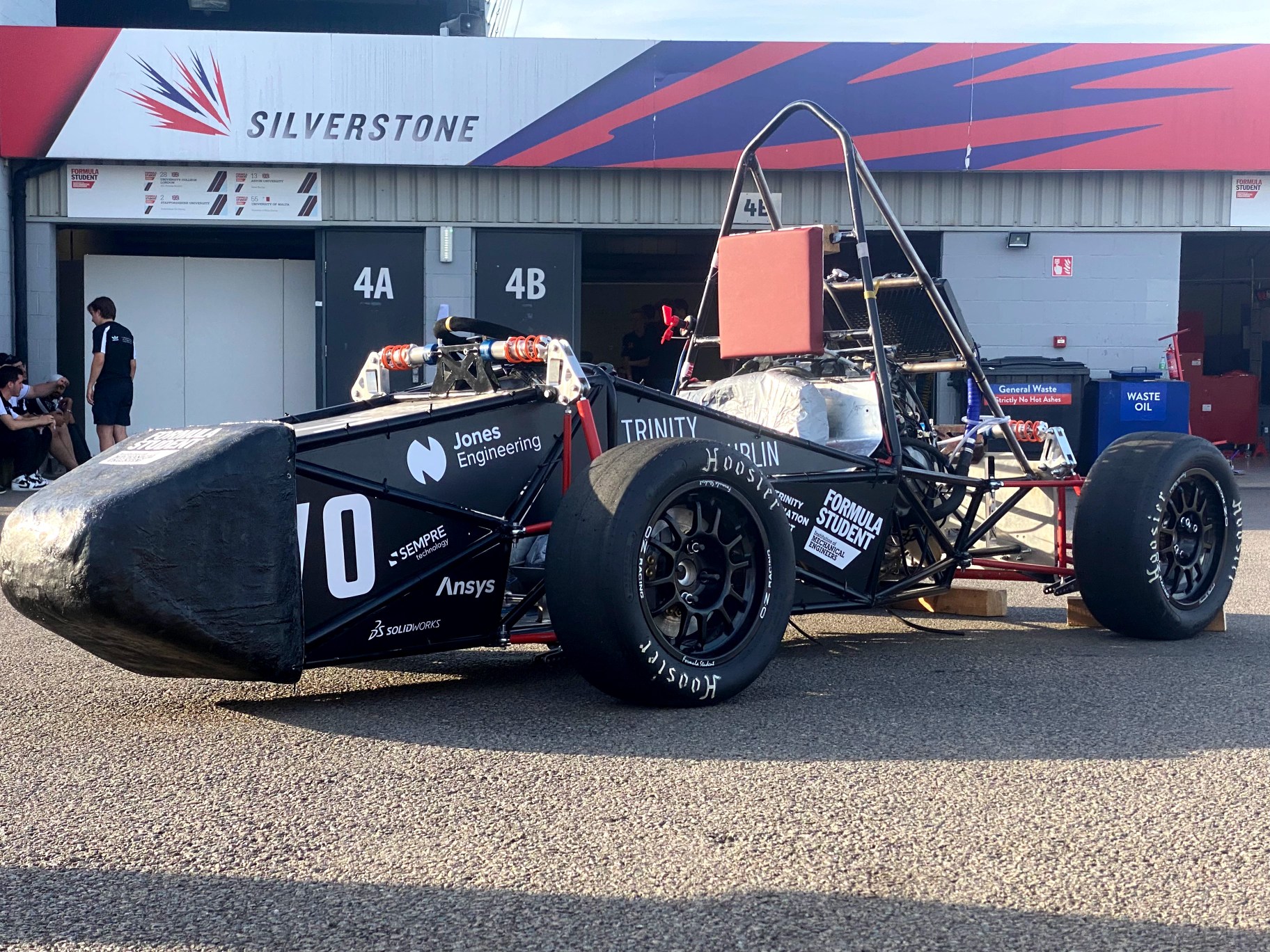Science, Technology, Engineering, and Mathematics: The four pillars of STEM, and four main components of Formula Trinity. This incredible society builds, codes, designs, and engineers sports car driving systems. Even with their focus being STEM-driven, their team includes students from all courses and subjects. In an interview with Formula Trinity’s Chief Operations Officer Lucy Dale, Trinity News received an inside view on all of the work, inspiration, and challenges that lie within the society. Formula Trinity focuses on building a car to compete in an annual engineering competition in which the team competes with others to “design, build, test, and race a small-scale formula-style racing car,” according to Formula Student (the competition platform).
Founded in 2017, Formula Trinity has grown exponentially in the past five years and even flourished through the Covid-19 pandemic. Dale joined the society in 2018 when it was composed of just a handful of people and it now has over 100 members. Formula Trinity is driven by passion and has had to overcome many obstacles in the past few years such as Covid, funding, and space. At the moment they are almost an entirely self-funded society and their time is given outside of college hours, while many of the teams they compete against receive college credit and funding. Formula Trinity is looking for a permanent space to call home, but at the moment they are building out of a garage in Ireland. For previous competitions, the car was not taken out of the UK, so the group had to fly to Edinburgh to run their code and project. Being able to overcome these obstacles and still compete in competitions makes Dale proud of her team and excited to be a part of it.
Divided into three sections, Formula Trinity has a role in any course. Business and Operations focus on the formal side of Formula, taking care of the events, marketing, and financials. This brings in other courses such as English and business students, not just engineering. Autonomous mostly attracts computer science and engineering students as this department focuses on research and development of the car, in preparation for the big day. Combustion, as their website says, “gets us the power”, meaning this team manages the engine and designs the intake and exhaust manifolds. The combustion group mainly consists of engineering students. If any students are interested, applications are available on their website and normally open at the beginning of the semester. Dale explained that the team is looking for dedicated and passionate members; this is the key to being part of Formula and what makes the team so great. According to Dale, they need people “who are willing to put the work in.”
“Not only does this team teach engineering, but it also helps members ‘get used to real-world things.’”
Joining Formula is an excellent way to make friends and become part of a close-knit group. Dale encourages new members to attend the group’s social outings to really get involved and jumpstart their Formula journey. Not only does this team teach engineering, but it also helps members “get used to real-world things.” With skills such as being able to plan group meetings, presentations, and defend your work, the work that members do in preparing their car for race day helps them “prepare for a realistic project.”
“Dale said the group was so proud of their accomplishment that ‘tears were shed when the car rolled out for the first time.'”
Last year, Formula entered in the Formula Student competition as two teams in the DDT (Dynamic Driving Task) division, where the vehicle is ‘system ready’ meaning the team selects their sensors and controllers. By competing in this category, the team is not required to manufacture their own vehicle and focuses on their software. Dale said the group was so proud of their accomplishment that “tears were shed when the car rolled out for the first time.” This year, they are aiming to combine the teams and compete as one in the ADS (Automatic Driving System) category: the team competes with an autonomous (driverless) vehicle they have built completely themselves, which as Formula Student posts, is “intended for experienced, multi-disciplined teams who are either developing existing FS cars to have driverless capabilities or vehicles they are building from scratch.” Last year, only two teams competed in ADS; if Formula Trinity competes in ADS this year, they will be the first-ever Irish team to compete and third ever team from the UK.
Formula Trinity is continuing to grow this year and looking to branch out to other parts of the college community, including the Arts and Humanities. Dale says that, “really cool things are coming up,” and they are “looking for a pretty successful competition after all we learned last year.” She encourages people to follow their socials and apply no matter what they’re interested in. Even though Formula is a high-stress-level project, Dale reassured Trinity News that the group’s vibe is more “relaxed” than one would expect, and that this is essential in keeping members working together towards a common goal.
Fellow students can follow their journey and support them in competition by monitoring their website, blog, Instagram (@formulatrinity), or by reaching out. While the work they put in is tedious and time-consuming, it pays off when the group sees their engineering and hard work in action.






